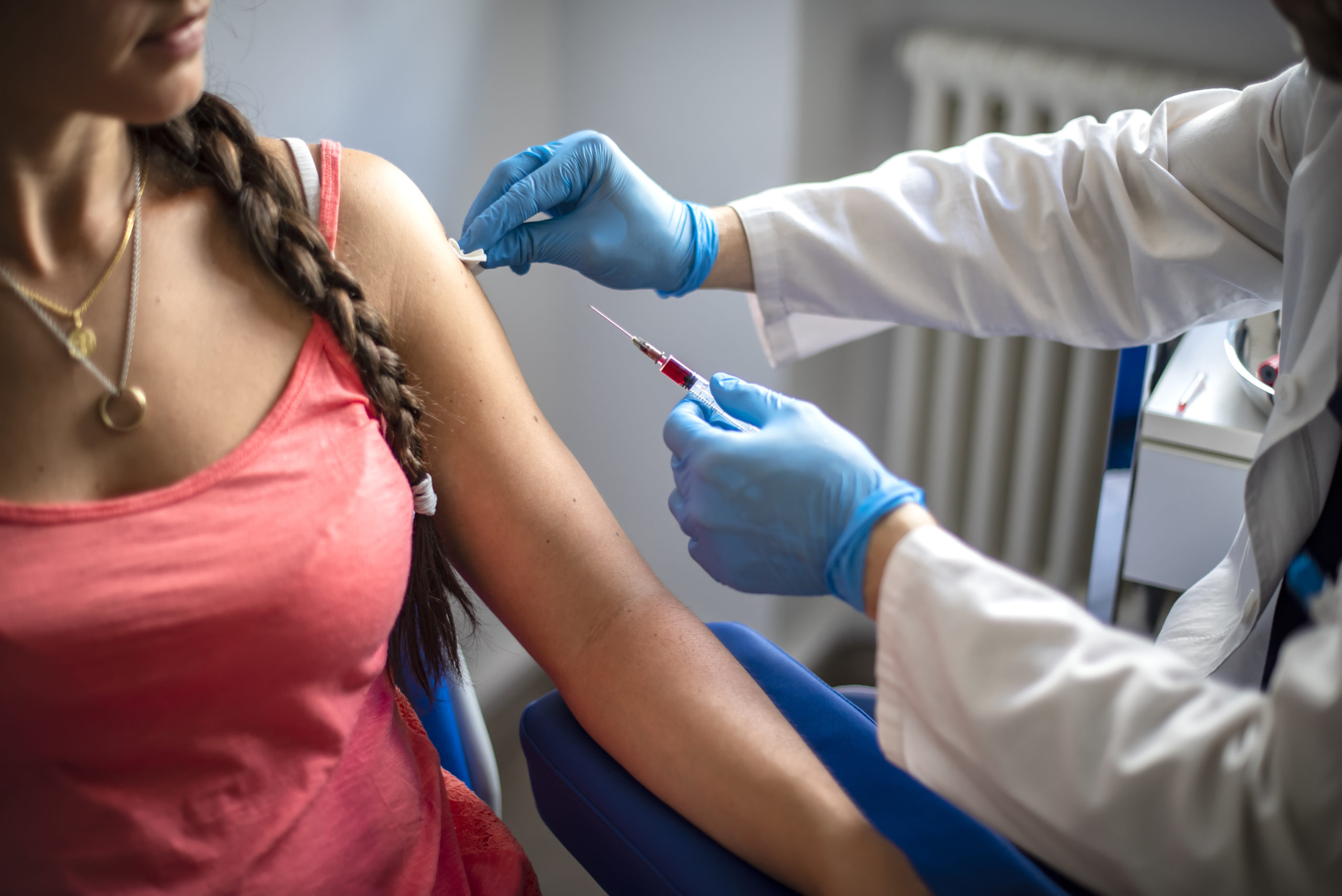
For the needle phobic among us, we have bad and good news: On one hand, there are quite a few blood draws throughout your pregnancy. But on a positive note, you won’t bat an eye at a syringe by the time you check into the hospital for labor. If your fear of having your blood drawn is getting in the way of your excitement over baby, here’s what you need to know:
Just how many blood tests are there?
The number of times your doctor or midwife will order blood work really depends on the practice. At the very least, you will be asked to have a full screening performed at the beginning of your pregnancy. This is the largest blood draw you’re likely to experience, so it’s nice to get it over with in the beginning. Here, they’ll check your hormone levels, test you for a myriad of illnesses and discern your blood type. You’ll also have the opportunity around week 13 to undergo a screening for genetic disorders such as Down syndrome and spina bifida–both of which require a blood test. At some point throughout your nine months, your doctor or midwife may want to check your iron and vitamin D levels. You will most likely have your blood drawn at the hospital, too, before your little one is delivered.
How to get through it
Let’s face it: The anticipation of a needle prick is often much worse than the experience itself. If you can’t get over your fear, here are a few helpful ways to cope:
- Don’t put off any blood work your health care provider has ordered–that will just give you time to dwell on it. If possible, have the draw completed early in the day, so that you don’t spend your morning dreading an office visit.
- Make sure you eat before the draw. You don’t want to be lightheaded or get sick from an empty stomach.
- Ask for help: Nurses are accustomed to dealing with needle-phobic patients. While your nurse prepares for the draw, let her or him in on how you’re feeling. You may find that he or she talks to you throughout the process to keep you distracted and calm.
- Ask for a cup of water and an ice pack for your forehead. If you’re the type who gets woozy at the sight of a syringe, these will help keep you comfortable through the process.
- Don’t hop out of the chair as soon as the draw is complete. If you’re lightheaded, take your time. Lean back, sip on water and take deep breaths until you regain your strength.
Do you have any tips you think we should add to our list? Let us know in the comments below!


This article is for people needle phobic and seeking help. Why would the opening image you choose be that of a person about to get an injection? Shows absolutely no consideration for the subject matter or the target reader.
Totally agree. Amazing how many articles online do this. So thoughtless and totally undermines any help that the article might offer. Generates a massive fear response which will either make the reader close the page immediately or, if they continue reading they could be so anxious they associate the potentially good advice with a bad experience (shock of the image) thus making the phobia worse! Good luck with your pregnancy and phobia if you are in that situation (as I am). X
A tip when writing an article for people with phobias of needles: don’t include a massive stock photo of a needle full of blood by someone’s arm! (Honestly…)